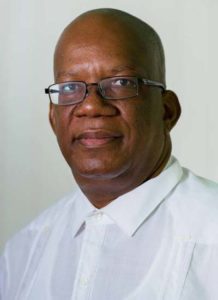
Days after the Government laid the Green Paper in the National Assembly, Opposition Leader Bharrat Jagdeo raised concerns over the total control of the Natural Resources Fund by the Finance Ministry.
The Green Paper sets out preliminary plans on how the Government hopes to manage the revenue from oil and other natural resources, with clear objectives of the Natural Resources Fund.
Jagdeo reminded that he had initial objections to Government’s plans for the Fund but now that the Green Paper has been made public, he finds the plans to be even more worrying.
The document states that the Finance Ministry will be responsible for the overall management of the Fund, including requested withdrawals in the annual budget proposal.
“…calculating the Fiscally Sustainable Amount; drafting the Investment Mandate; entering into the Operational Agreement with the Bank of Guyana and drafting the annual report and reporting on the Fund through the annual budget,” the document said.
As such, Jagdeo said he disagrees with the Minister’s total control for various reasons, but zeroed in on Jordan’s silence on the signing bonus from ExxonMobil. “This is the same Minister who lied to the country about the US$18 million signing bonus, saying that Guyana never received it and never asked for it. He lied to Guyanese for over a year. And it is the same Minister who will now have full control.”
Meanwhile, in the document, it sets out specific rules, including the Fiscal Rule, which caters for the development gaps, both in terms of human capital and physical infrastructure, that exist and the need to accommodate development spending via the National budget.
To oversee these decisions, the Government has recommended the establishment of a macroeconomic committee which would consist of five members, including a representative of the Finance Minister.
In terms of the management of the fund, a sovereign investment committee would be responsible for advising the Minister on the investment mandate but would also include a representative.
Further, the Green Paper states that the Bank of Guyana (BoG) will be the operational manager of the Fund. The Opposition Leader has already expressed deep concern about this proposal.
Although the Government has catered for a representative from the Opposition to sit on the Fund, Jagdeo has already objected to this proposal stating that politicians should not be included.
“We don’t want politicians… we, ourselves, to manage this money. This Fund has to be independently, technically managed … not by politicians again and stored at the Central Bank. We have a problem with that model. It departs radically from best practices, like Norway and the other countries,” he had stated.
Further, Jagdeo also criticised the Government for peddling a political assessment of the oil and gas sector. “The real substantive matters are still not being addressed,” he said, while noting that Finance Minister Winston Jordan has been engaged in a lot of fluff talks with members of the public on this matter.
Referring to Jordan’s recent comments, the Opposition Leader noted that while the Minister promised billboards to announce the inflow of oil monies, he recalled that it was he who denied that ExxonMobil paid a US$18 million signing bonus to Guyana for over a year and a half.
“The truth was finally exposed after a document was leaked to the media… People will see through this game of the APNU/AFC. They talk about oil and gas, but it is not realistic what they are saying… they are painting a rosy picture: that oil will solve everything. This is not so,” he added.
Jagdeo also rubbished Jordan’s statement which sought to create the impression that hotels and flights were filled and this was a direct indication that things would improve in the economy. “What about the economy that is falling apart?” he queried, while noting that 30,000 persons have lost jobs since the coalition took office.
Now that the Green Paper has been laid, it paves the way for the proposed legislation on the Sovereign Wealth Fund to be laid in the National Assembly which looks at addressing two main issues: stability of the economy and saving for future generations. Advice was sought from international agencies.



